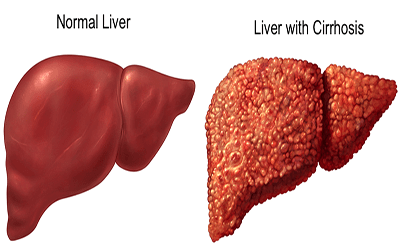world doctors
|
|
About Liver failure
|
|
|

|
|
|
|
|
The greatest international website of world doctors :
|
|
|
|
Liver disease is any disturbance of liver function that causes illness. The liver is responsible
|
|
|
|
for many critical functions within the body and should it become diseased or injured, the loss
|
|
|
|
of those functions can cause significant damage to the body. Liver disease is also referred to
|
|
|
|
as hepatic disease.
|
|
|
|
Liver disease is a broad term that covers all the potential problems that cause the liver to fail
|
|
|
|
to perform its designated functions. Usually, more than 75% or three quarters of liver tissue
|
|
|
|
needs to be affected before decrease in function occurs.
|
|
|
|
The liver is the largest solid organ in the body; and is also considered a gland because among
|
|
|
|
its many functions, it makes and secretes bile. The liver is located in the upper right portion
|
|
|
|
of the abdomen protected by the rib cage. It has two main lobes that are made up of tiny
|
|
|
|
lobules. The liver cells have two different sources of blood supply. The hepatic artery supplies
|
|
|
|
oxygen rich blood that is pumped from the heart, while the portal vein supplies nutrients from
|
|
|
|
the intestine and the spleen.
|
|
|
|
Normally, veins return blood from the body to the heart, but the portal vein allows chemicals
|
|
|
|
from the digestive tract to enter the liver for "detoxification" and filtering prior to entering the
|
|
|
|
general circulation. The portal vein also efficiently delivers the chemicals and proteins that
|
|
|
|
liver cells need to produce the proteins, cholesterol, and glycogen required for normal body
|
|
|
|
activities.
|
|
|
|
|
|
|
|
|
|
|
|
|
|
|